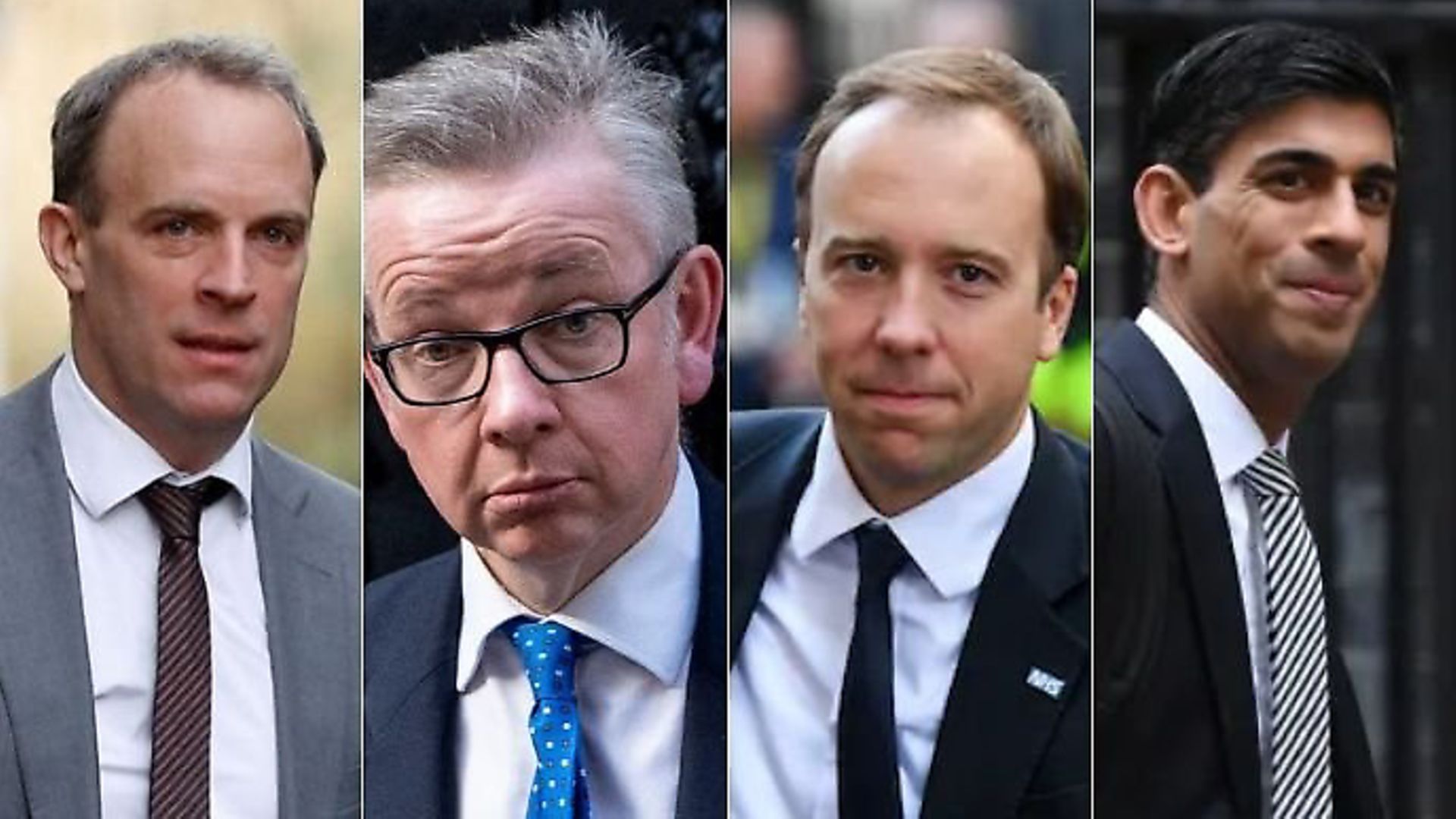
Boris Johnson has unveiled his top team to tackle the coronavirus outbreak, claiming that it is a ‘war’ that must be won.
The prime minister unveiled a new ministerial structure tasked with convening at daily ‘C-19 meetings’ to refine measures set out at the Cobra emergency committee.
It includes chancellor Rishi Sunak, health secretary Matt Hancock, chancellor of the duchy of Lancaster Michael Gove and foreign secretary Dominic Raab.
They have each been tasked with overseeing implementation committees tackling challenges from the economy, NHS, public service and international response.
Johnson told his cabinet: ‘We are engaged in a war against the disease which we have to win.’
He stressed that ministers must rise to the challenge of supporting businesses through the ‘hugely challenging times’, according to Downing Street.
Downing Street announced the C-19 meetings would be chaired each day by the PM after he came under criticism from some for failing to tackle the crisis with sufficient urgency.
The health secretary will chair a committee focusing on the NHS having sufficient critical care capacity and ensuring there is a medical and social package to the vulnerable and elderly being shielded from the virus.
Gove is tasked with holding meetings to examine whether the rest of the public sector and critical national infrastructure is prepared.
Have your say
Send your letters for publication to The New European by emailing letters@theneweuropean.co.uk and pick up an edition each Thursday for more comment and analysis. Find your nearest stockist here or subscribe to a print or digital edition for just £13. You can also join our readers' Facebook group to keep the discussion and debate going with thousands of fellow pro-Europeans.
The chancellor will tackle the economic impact and response, including ensuring there is resilience in the supply chain.
Raab will consider the international response through the G7 and G20.
‘The prime minister has been clear that countering this pandemic will require significant national effort from government, businesses, charities, communities and citizens across the UK,’ a Downing Street spokeswoman said.
‘The implementation committees will regularly meet with key representatives from relevant sectors to inform their decision making.’









